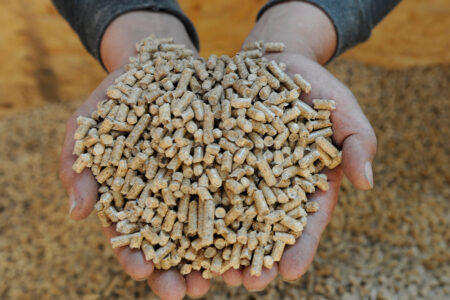
Welcome to our special issue on Canada’s foreign policy, Harper-style. Canada no longer positions itself as the honest broker in foreign affairs, but has shifted under the present government to a values-based foreign policy.
Or, as Foreign Affairs Minister John Baird put it in his Q&A with us: “a foreign policy that recognizes that Canada does have interests.” One in which, he adds, Canada won’t go along just to get along in international organizations.
Nowhere is this values-based foreign policy more apparent than in the Harper government’s unstinting support of Israel, at all times and in all circumstances. As Baird puts it: “Canada is not going to be an honest broker between an international terrorist organization and a liberal democracy.”
Gil Troy, for one, is impressed. “Harper’s idealism,” he writes, “repudiates Canada’s guilt-ridden even-handedness.” But Canada is, above all, a trading nation. And Derek Burney suggests, “it’s time to recalibrate the economic dimension of Canada’s foreign policy to enable us to take better advantage of compelling new opportunities in emerging markets, of which China is number one.” For her part, Wendy Dobson notes that “Canada is a late participant in Asia’s re-emergence,” and needs to up its game with a Canadian strategy for the AsiaPacific region. Robin Sears, himself an old Asia hand, having lived in the region for many years, observes that Canada is finally catching Asia fever, and adds that it’s about time.
Still, Canada’s most important relationship by far remains that with the United States. Colin Robertson, who knows America close-up from his diplomatic postings there, writes that Stephen Harper has done a good job of managing Canada-US relations, the top file on any Canadian prime minister’s desk.
Brian Mulroney offers acid rain as a case study in Canada-US relations. In an article adapted from an address given at the Foreign Affairs Department on the 21st anniversary of the signing of the Acid Rain Accord on March 13, Mulroney notes that thousands of protesters shouted “stop acid rain!” when Ronald Reagan first visited Parliament Hill as US president in March 1981. Ten years later, almost to the day, Mulroney and President George H.W. Bush signed the accord on Parliament Hill. “In 10 years,” he notes, we went from yelling at one another, to talking to one another, to negotiating with one another, to making an important agreement with one another.” On the anniversary of the accord, he adds: “Not only has the issue been resolved, the problem has been solved.”
Michael Hart looks at the climate change file, and writes that Stephen Harper “deserves credit for skillfully steering” it “between the shoals of climate alarmism and economic responsibility.”
Fen Hampson, director of the Norman Paterson School of International Affairs at Carleton, and William Zartman of Johns Hopkins University, examine the nuclear standoff between Iran and the West — particularly Israel and the US. They see it as a classic game of chicken with two cars, Iran and Israel, careening down the road toward a possible head-on collision.
In this year of the Queen’s Diamond Jubilee, the Commonwealth will be very much in the spotlight. Senator Hugh Segal, a former president of IRPP, is Canada’s special envoy for Commonwealth renewal. He was a member of the Eminent Persons Group, which made a host of recommendations for renewal and reform of the club, which is made up of 54 states and 2.1 billion people.
Canada is also an Arctic state, and is the incoming chair in 2013 of the eight-nation Arctic Council, the association of trans-polar countries. Terry Fenge, an Ottawa consultant specializing in Arctic and Aboriginal issues, sees the two-year chairing of the council as Canada’s opportunity to conduct the Arctic orchestra.
In a riveting Letter From Moscow, Jeremy Kinsman looks at Russia’s long and challenging road to democracy, from Boris Yeltsin to Vladimir Putin. With Putin returning to the presidency, once again trading jobs with his protégé, Dmitry Medvedev, it will be interesting to see how they treat dissenters. “Vladimir Putin has shown a distaste for democracy, but he’s a very smart guy when his cockiness doesn’t get in the way of his judgment.” Russia may be a riddle wrapped in an enigma, but no one reads it better than Kinsman, who was our ambassador there in the early 1990s.
And in another Letter from Kabul, Nipa Banerjee looks again at the state of affairs in Afghanistan, reporting on the insurgency, corruption, the narcotics trade and the absence of the rule of law. Banerjee, who formerly ran Canada’s aid program there, sees many steep challenges ahead, just as Canada’s mission is being reprofiled to a training role. Finally, Avril BenoiÌ‚t reports from Haiti from the perspective of Doctors Without Borders, and sees the do-gooders getting in the way of doing good.
To end at the beginning, we offer a Verbatim from Stephen Harper, excerpted from his recent speech to the World Economic Forum at Davos.
For the rest, we have two major book reviews this month. Former federal cabinet minister Jim Prentice reviews Nation Maker: Sir John A. MacDonald; His Life, Our Times, by Richard Gwyn, and judges it “a wonderful contribution to Canadian history” and a page-turner. Finally, Renée Filiatrault, a former diplomatic hand in Afghanistan, considers military historian Sean Maloney’s Fighting for Afghanistan: A Rogue Historian at War.







